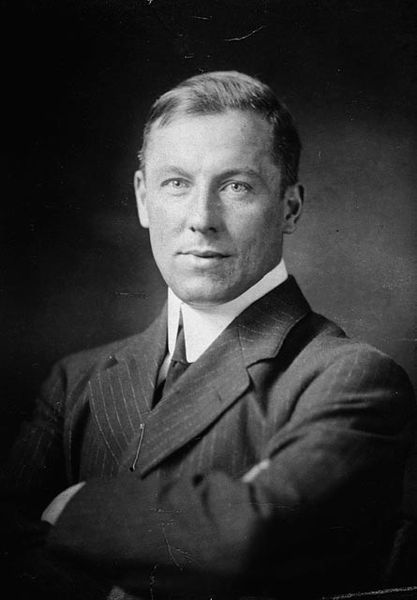By Edith McClintock
Addiction came on fast and strong this week. It started with the arrival on Saturday of my great uncle John S. McClintock’s 1939 book, Pioneer Days in the Black Hills. I’d known vaguely of his history: he’d joined the gold rush of 1876 in the South Dakota Black Hills, settled in Deadwood, and run a stagecoach line for twenty-five years.
Addiction came on fast and strong this week. It started with the arrival on Saturday of my great uncle John S. McClintock’s 1939 book, Pioneer Days in the Black Hills. I’d known vaguely of his history: he’d joined the gold rush of 1876 in the South Dakota Black Hills, settled in Deadwood, and run a stagecoach line for twenty-five years.
But I didn’t know my uncle wrote a book until last month, or that my mom had an original copy. She mailed it to me and I dug in immediately, indulging in his first-hand tales of Wild Bill Hickok (“a man killer”) and Calamity Jane (drunk, kind, and wildly untruthful), stage-coach holdups, Indian scalpings (yes, bad, I know), gold mining, land grabs, confidence games, and corrupt and immoral city leaders. Pretty much what you’d expect of Deadwood in the late 1800s.
The book was fun, but it also stirred my appetite, which is where the trouble began. On Sunday morning, I logged onto Ancestry.com for a 14-day free trial, and have barely come up for air in days. I’d tried Ancestry.com about five years ago and found it a hard slog. But since then, my relatives have been quite industrious (as befits our Puritan heritage), starting with my Uncle Wayne who was kind enough to trace the McClintock line back to another John McClintock who arrived in Pennsylvania in the early 1700s, on back to Northern Ireland in the 1600s, then Scotland in the 1500s, where that line stops. For now.
The McClintocks, however, became irrelevant when I hit my own gold vein of sorts, this one spewing King Roberts of Scotland. I was so swamped with earls and kings and princesses, my arrogance turned heady. Until it turned complicated. Contested, in fact. My Virginia Alexanders were usurpers, fraudsters possibly, despite being American pre-revolutionary "aristocracy". George Washington was not enough for them. They wanted a king of Scotland. Or five. An emperor. Charlemagne himself. Embarrassed, I deleted the line.
 |
| Charlemagne, aka Charles the Great, King of the Franks, Imperator Augustus, and Holy Roman Emperor |
But I didn’t like Charlemagne being ripped from my blood. My DNA screamed in protest. Plus, I’d notified my sister of our exalted status and she was already dialing Duchess Catherine to schedule drinks at Buckingham Palace. There had to be a way back to the crème de la 1% of history. In my denial, I went so far as to read the source material, to see if those naysayers (aka Wikipedia) could possibly be wrong. Instead it grew worse - my connection to the exalted Virginia Alexanders disappeared completely.
Could it be that my ancestor George Alexander was important for nothing more than accusing poor Mary Randall of witchcraft in Springfield, Massachusetts, in 1691? Was that what my illustrious heritage had come to? Not even a Salem witch trial? Mary didn’t even get staked, just spent some time in jail, although I did get excited at the thought of a cursed bloodline. I decided if I couldn’t have a European emperor, it would have to be Jamestown or the Mayflower. American royalty. I had standards now, and I’d find those ancestors.
And so I set upon my quest to trace every direct line of my family (excluding my probably peasant relatives that hadn’t yet been documented by distant cousins and would involve actual research work). Line after line, branch upon branch, I crawled back with a click of my mouse, finding founding fathers of Virginia, Connecticut, New Jersey, Massachusetts, and even North Carolina (and yes, a few slave owners, sorry).
But it wasn’t until the bottom of my tree, the family of my maternal great-grandmother – the Parks of Farmington, Missouri – that I hit a new vein. It spread across Virginia: Puritans, Jamestown settlers, a colonial governor, a founder of the Virginia Company. A veritable panoply of Revolutionary Patriots (as I will henceforth refer to my family). But even better, a connection to the House of Plantagenet and all those King Henry’s of England though the Waller family who arrived with William the Conqueror and fought at the Battle of Hastings. Not fool’s gold this time. I’m quite sure. Charlemagne all the way.
So there you have it. My golden heritage. The hardest part will be deciding what coat of arms to nail above my bed. And if it’s all wrong, blame my fifth cousins thrice removed for their poor research and ancestral avarice, because they did all of the work. And although I’m not done, I have to stop. I have to stop. I will stop. Before I find out none of it’s true.
For my Uncle Wayne, who passed away recently. He had the fever.
For more, visit my author website and/or personal blog, A Wandering Tale. Even better, order a copy of Monkey Love & Murder on Amazon, Barnes & Noble, or the Book Depository (free shipping nearly anywhere in the world).
For more, visit my author website and/or personal blog, A Wandering Tale. Even better, order a copy of Monkey Love & Murder on Amazon, Barnes & Noble, or the Book Depository (free shipping nearly anywhere in the world).





